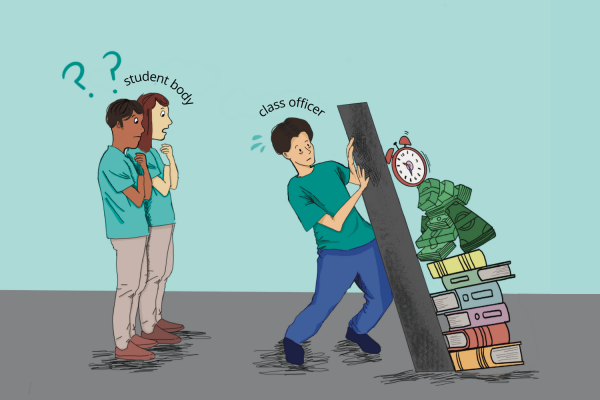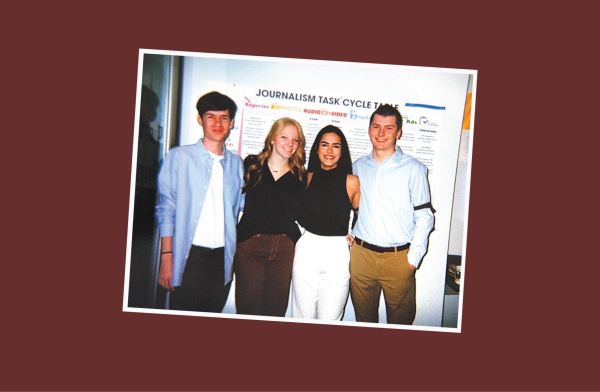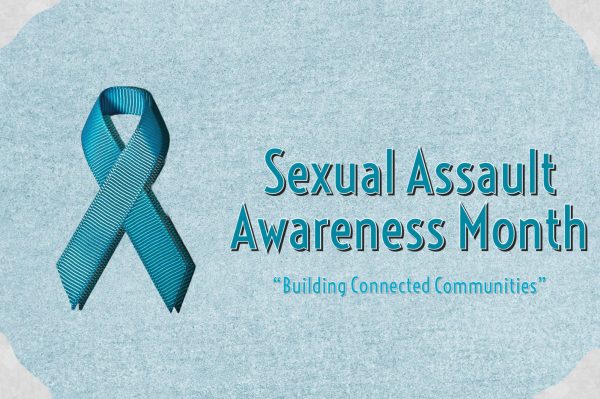Op-Ed: Anti-Semitism Never Went Away
May 11, 2021
Two weeks ago, four synagogues in Riverdale, New York, were defaced by a man who hurled rocks at the sacred places of worship. This attack, which resulted in $250 of damage, is one of many that are not brought to the public’s attention.
Unfortunately, this is not an isolated incident in Riverdale. In 2000, Molotov cocktails were thrown at the Conservative Synagogue, Adath Israel. In 2009, four men devised a plot to bomb two Riverdale synagogues.
Still, there have been many more anti-Semitic attacks in the United States, displaying an alarming, ongoing issue in our nation that needs to be addressed.
On August 11, 2017, a Charlottesville, Virginia “Unite the Right” rally occurred and spurred violence from white supremacists. Despite the rally’s political intentions, it focused on the Jews, with many chanting vile phrases such as “the Jews will not replace us.” Many in attendance wore swastikas, hollering slogans from the Nazi regime like “blood and soil.”
At a nearby synagogue, a Jewish congregation was praying. Outside, men held guns. Nazi sites called for the synagogue to be burned dow, while the Charlottesville police declined to protect the synagogue.
When former President Donald Trump held a press conference to address the rally in Charlottesville, he said, “you had some very bad people in that group, but you also had people that were very fine people, on both sides.”
In response, South Carolina Republican Senator Lindsay Graham said, “President Trump took a step backward by again suggesting there is moral equivalency between the white supremacist, neo-Nazis, and KKK members.” Even former Senate Majority Leader Mitch McConnell said, “There are no good neo-Nazis. We all have a responsibility to stand against hate and violence, wherever it raises its evil head.”
Still, while Trump had called white supremacists and Neo-Nazis “criminals,” he never formally condemned them.
Then, in 2018 at the Tree of Life synagogue in Pittsburgh, an active shooter murdered 11 congregation members.
Anti-Semitic attacks over the past few years has skyrocketed. According to a survey conducted by the Anti-Defamation League (ADL) surveyed, 40 percent of Jews heard anti-Semitic slurs or threats to them in the past year. Additionally, 63 percent of Jews have seen an anti-Semitic incident in the past five years.
True, anti-Semitism has never never only an American problem. Beyond pogroms throughout history, including the Holocaust, in 2019, France and Canada saw a 27 percent increase in anti-Semitic attacks.
This trend continued in 2020, as the COVID-19 pandemic spread throughout the world. Like the Asian American and Pacific Islander community, Jews have also been targeted as scapegoats for the deadly virus, just like they were for the Black Death in the mid-1300’s. According to Newsweek, about one-fifth of English people blame either Jews or Muslims for the outbreak.
During the January 6 insurrection of the Capitol, anti-Semitic tropes were also displayed. One man wore a shirt with the words “Camp Auschwitz,” referencing the infamous and dehumanizing World War II concentration camp.
However, more anti-Semitic actions occur and go unnoticed by the media every day. Along with places of worship, schools are often the targets of attacks.
Duxbury High School’s head football coach was recently fired for using anti-Semitic tropes on the football field. Dave Maimaron used “Auschwitz,” “Dreidel,” and “Rabbi” as play calls.
In our community, if you see something, say something. Please, speak up and share your voice. Don’t be a bystander. This May, let’s honor Jewish Heritage Month by taking a stand against hate—in all of its forms.
This story was originally published on The Gator on May 5, 2021.



























![IN THE SPOTLIGHT: Junior Zalie Mann performs “I Love to Cry at Weddings,” an ensemble piece from the fall musical Sweet Charity, to prospective students during the Fine Arts Showcase on Wednesday, Nov. 8. The showcase is a compilation of performances and demonstrations from each fine arts strand offered at McCallum. This show is put on so that prospective students can see if they are interested in joining an academy or major.
Sweet Charity originally ran the weekends of Sept. 28 and Oct. 8, but made a comeback for the Fine Arts Showcase.
“[Being at the front in the spotlight] is my favorite part of the whole dance, so I was super happy to be on stage performing and smiling at the audience,” Mann said.
Mann performed in both the musical theatre performance and dance excerpt “Ethereal,” a contemporary piece choreographed by the new dance director Terrance Carson, in the showcase. With also being a dance ambassador, Mann got to talk about what MAC dance is, her experience and answer any questions the aspiring arts majors and their parents may have.
Caption by Maya Tackett.](https://bestofsno.com/wp-content/uploads/2024/02/53321803427_47cd17fe70_o-1-1200x800.jpg)
![SPREADING THE JOY: Sophomore Chim Becker poses with sophomores Cozbi Sims and Lou Davidson while manning a table at the Hispanic Heritage treat day during lunch of Sept 28. Becker is a part of the students of color alliance, who put together the activity to raise money for their club.
“It [the stand] was really fun because McCallum has a lot of latino kids,” Becker said. “And I think it was nice that I could share the stuff that I usually just have at home with people who have never tried it before.”
Becker recognizes the importance of celebrating Hispanic heritage at Mac.
“I think its important to celebrate,” Becker said. “Because our culture is awesome and super cool, and everybody should be able to learn about other cultures of the world.”
Caption by JoJo Barnard.](https://bestofsno.com/wp-content/uploads/2024/01/53221601352_4127a81c41_o-1200x675.jpg)













